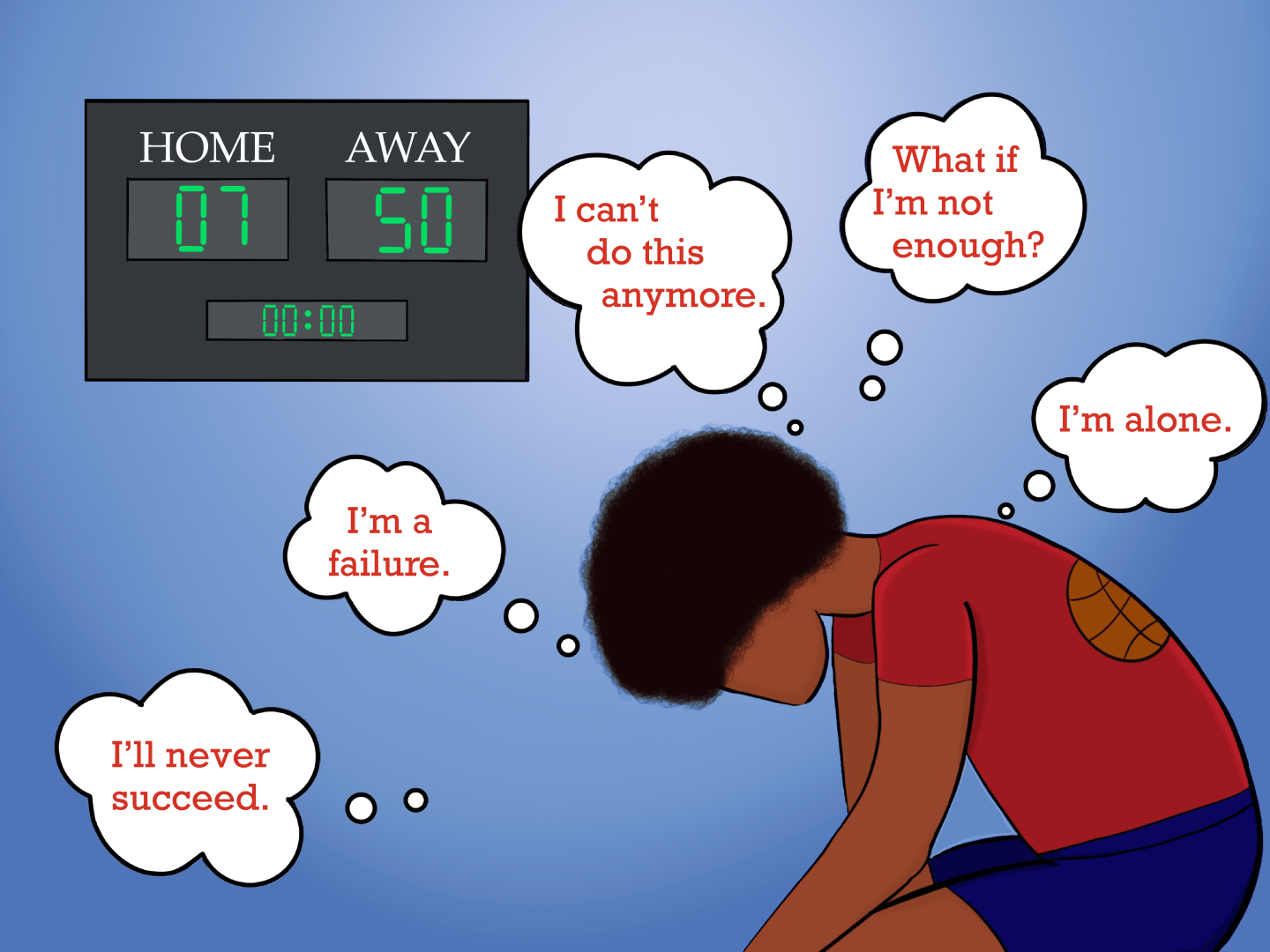Recent studies by the National Collegiate Athletic Association (NCAA) show that collegiate student athletes are experiencing “elevated levels of mental health concerns,” which includes “mental exhaustion, anxiety and depression” during and after the COVID-19 pandemic. Assistant Athletics Director for Sports Medicine at the University of Indianapolis Brian Gerlach said he saw this before COVID-19.
Gerlach does a variety of things in regards to health such as being a certified athletic trainer, licensed health care provider, certified strength and conditioning specialist, and American Red Cross certified mental health first aid provider.
“We saw a tremendous uptake in the amount of need for mental health [care],” Gerlach said.
According to the NCAA, in the past two years the NCAA has sent out three well-being surveys to student athletes around the United States, with a total of 70,000 responses. Data from all three surveys report that student athletes are having increasing concern regarding psychological wellness, especially after the coronavirus pandemic. The compilation of data found that mental health complications are “1.5 to two times higher than identified before the COVID-19 pandemic.”
The NCAA’s constitution states that, “each member school is charged with facilitating an environment that reinforces physical and mental health within athletics by ensuring access to appropriate resources and open engagement with respect to physical and mental health.” This means that all colleges that are part of the association must not only provide physical health care to athletes, but mental health care as well.
The research by the NCAA also found that many collegiate athletes are hesitant to utilize the mental health resources on campus with 48% of females and 46% of males saying they would not “feel comfortable seeking support from a mental health care provider on campus.”
Junior undergraduate exercise science major and member of the UIndy Swimming & Diving team Faith Atkinson has been researching perceived stress in athletes at the university.
“Athletes are kinda seen as role models…,” said Atkinson. “I think athletes see themselves as trying to hide their mental health problems for other people because they want to be seen as that role model.”

The 2021 survey by the NCAA also indicated that 65% of female athletes and 58% of male athletes agreed that their teammates took each other’s mental health concerns seriously.
Junior undergraduate exercise science major and athlete for UIndy Track and Field, Claire Tabit, who is researching motivation in athletes, believes that teams at UIndy are supportive towards one another in regards to mental health.
“In my experience, it’s very supportive and… everyone’s supportive of you and makes sure that you’re getting and have access to resources that are available for you,” Tabit said.
According to Gerlach, UIndy Athletics provides several mental healthcare resources for athletes, including counseling through the UIndy Health & Wellness Center in the Health Pavilion, weekly campus visits from a sports neuropsychologist, an athlete-specialized therapist and a reinstated support group. The support group called Pursuing Athlete Wellness (PAW) will be held every Wednesday night from 8:35 p.m. to 9:30 p.m., starting on Sept. 28 in Ruth Lilly Fitness Center.
“It’s okay to speak up and say that you need help and that you’re not feeling okay,” Gerlach said. “And no problem is too small to reach out for help.”
Athletes can contact their athletic trainer to make an appointment with UIndy’s sports neuropsychologist or specialized mental health counselor. If you or someone you know is experiencing mental distress, please call the Suicide and Crisis Lifeline at 988.





